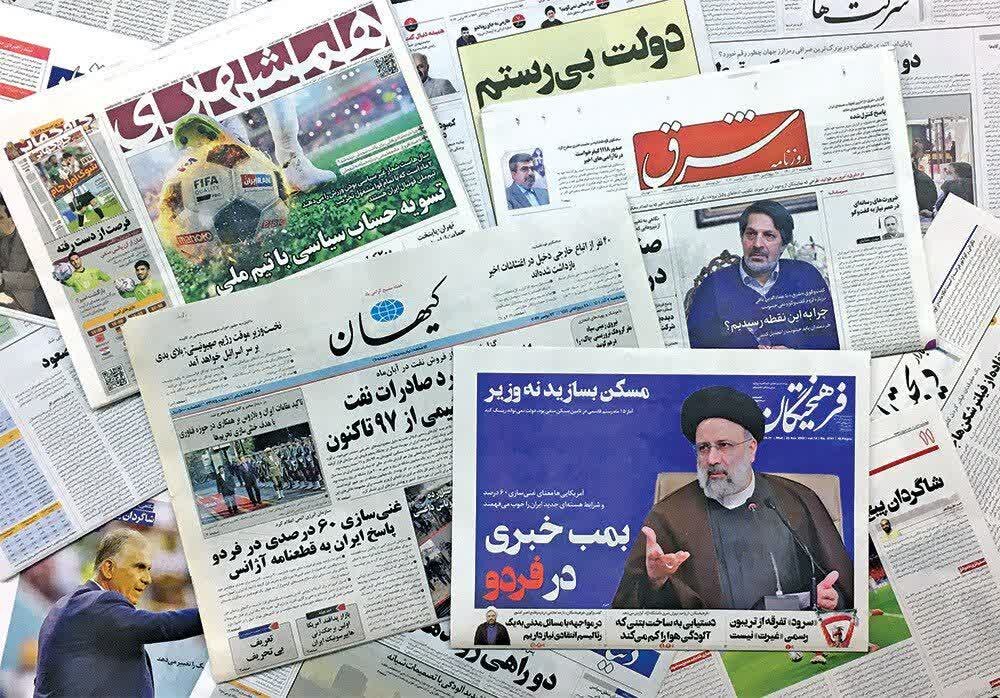Sanctions are main cause of inequality

TEHRAN- The main problem lies with economic interaction with the world and if the foreign policy is not reformed, the problems will not be solved fundamentally, reformist political activist Mehdi Ayati told the Arman-e Melli newspaper.
“Some 60 to 70 percent of the people are struggling with low income and high expenses. Currently, we have an unhealthy economic population pyramid, at the top of which are a number of rich people who have a lot of wealth both inside and outside Iran, and the rest of the population are living below the declared poverty line,” Ayati remarked.
The analyst considered the economic problems as the main cause of dissatisfaction among Iranians and said that the major problem is sanctions, and the subsidiary one is mismanagement.
The key to overcoming the current situation is improvement of economic situation, and this will not be achieved unless the doors of Iran and the world are opened to each other, and these doors will not be opened unless we return to the JCPOA, he highlighted.
Etemad: Less participation, more protest
Etemad published an analytical, investigative report in which it says protests have mostly occurred in cities that have had the highest decrease in election turnouts since 2016.
In other words, cities that have been more active in protests were those that have become more politically desperate and participated less in the presidential elections.
The newspaper argued that reduction in political participation is one of the most important factors in the outbreak of protests, their intensification, and violent course, explaining how a social protest can spread to other issues and in different parts of the country.
Iran: Riots hitting economy
The state-run Iran publication reported the economic consequences of street riots.
Although unrest and riots have political and social aspects, they are closely related to economy. After three months, its short-term effects on the country’s economy are visible, but what is more important is the long-term effect of the unrest on various sectors of the national economy.
On average, widespread unrest is associated with a 1% drop in GDP over the next year and a half. Based on the findings, the adverse effects of protests on GDP are caused by severe contractions in service and production sectors.
In general, as shown by global research, the economic effects of unrest, in addition to having an immediate and short-term impact on different sectors of the economy, such as reduction in consumption and production. Its long-term effects will have far more serious damages.
Farhikhtegan: Iranians’ $20b gift to Trudeau
The Farhikhtegan newspaper run by Islamic Azad University (IAU) ran a headline on “Iranians’ gift of $20b to Trudeau” in which it analyzed capital flight as an economic and social problem.
Capital flight has become a “chronic disease” and this is the long-term vision of economic investors and households who, regardless of short-term events, have not found an incentive to invest in Iran and are encouraged to spend their capital outside the national economic cycle. The $30-35 billion investment of Iranians in three countries of Canada, the UAE, and Turkey over the last decade is an example.
The newspaper gives eight reasons for Iranians’ reluctance to invest in their own country, including the depreciation of national currency, inflation, investment risk in developing countries, economic growth rate, restrictions on domestic financial markets, insecurity of the markets, social restrictions and lack of a socio-economic perspective.
Kayhan: Hybrid war neutralized
Due to the insight of the people, the enemy’s conspiracies were thwarted, but the enemy is still trying to carry out harmful actions against our country through psychological operations and consensus in international forums, so we must remain vigilant and active, the conservative Kayhan newspaper wrote, reacting to Iran’s removal from UN Commission on the Status of Women (CSW).
“Today, solving the economic and livelihood problems of the people is the duty of all forces and institutions; economic and livelihood issues are a ‘wound’ that the enemy take their benefits out of it. We are determined to help the government to resolve economic issues and in this way support proper investment in the country and improve employment (opportunities) and remove business obstacles.
We should also pay attention to our management weaknesses and shortcomings and know that if the weaknesses are piled up, it may be difficult to get rid of. We should pay attention to where the people’s trust has been damaged, where did this issue come from, and try to increase the people’s trust,” Kayhan quoted Judiciary Chief Mohseni Eje’ei as saying.
Leave a Comment